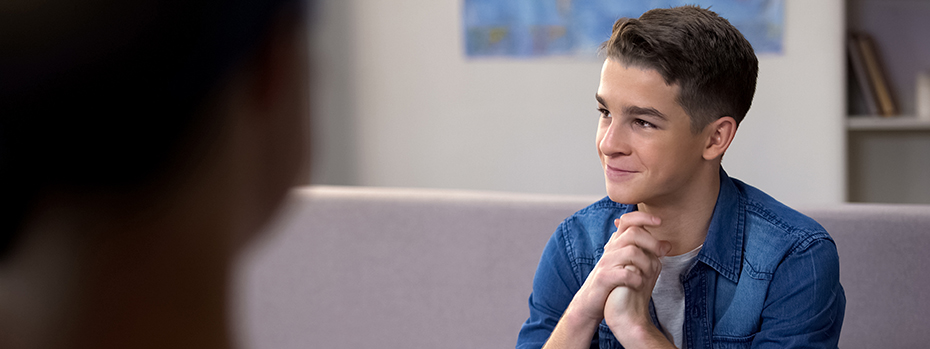Life After Cancer: Childhood Survivorship FAQ

It's normal to have questions and concerns after cancer treatment, even years later. It helps when you and your family have good health information so you understand what the future may hold.
Here are answers to questions you might have about our Childhood Cancer Survivorship Program.
General questions
How does the program work?
We offer support whether you completed treatment recently or are an adult who survived childhood cancer. You can access our resources as long as you need to.
When you are ready for our program, we will first ask you to complete a questionnaire. We will order blood tests and any other tests needed to understand your current health.
We use this information to meet with you (virtually or in-person) to help you understand any ongoing risks from your cancer or blood disorder treatments. We’ll work with you to develop a personalized plan so you’re prepared to watch for potential problems.
Our team can also help you with social, emotional or educational issues related to survivorship.
Why seek survivorship help?
Almost all cancer survivors have some lasting effects from treatment. Some are called “late effects.” They may show up years after treatment.
It’s important to understand the risks of late effects and to be routinely monitored so health concerns can be addressed as early as possible.
What are common long-term or “late effects” from cancer treatment?
Late effects can be physical, emotional or related to brain function.
Some survivors are at risk of slowed bone growth, heart disease, stroke, fertility issues and other cancers.
Some survivors are also at risk for post-traumatic stress disorder. Others may have issues with their ability to learn, memorize or think clearly. These cognitive (thinking) late effects are more common if you were treated for some types of leukemia, and for brain and spinal cord tumors.
How often should I visit?
We recommend that you see us every one to five years so we can check on your health and give you the newest information on late effects.
The summary reports and recommendations from your visits will enable your primary care provider to help you monitor and maintain your day-to-day health.
Will I get a written summary after my visits?
Yes. In the weeks following your visit to our clinic, you will get a detailed summary of all your past cancer treatment including any new notes or test results. We often send the summary through MyChart.
You can share this summary with your other providers to give them a better understanding of your health history and needs. The summary also offers recommendations for screenings and follow-up tests.
What if I have a question that isn’t answered here?
Please call us with your survivorship concerns or questions at 503-494-0200.
Who is eligible?
Who is Doernbecher’s survivorship program for?
Our team offers services for survivors of all ages. There is no upper age limit.
You can make an appointment with us if you had cancer treatment or a bone marrow/stem cell transplant as a child, teen or young adult, and finished treatment at least two years ago. We are available for one-time consultations or repeat visits.
Do I need a referral from my oncologist?
No. Oncologists or primary care providers may refer you to our program, but it’s not necessary. Survivors and their families can call us directly for information and/or to make an appointment.
In some cases, insurance companies may require a doctor’s authorization or referral for coverage. We can answer your questions and walk you through the process. Call 503-418-5149 to speak to our financial counselor.
I don’t have long-term issues after treatment. Is survivorship care necessary?
Periodic check-ins with a survivorship program can help all survivors of childhood cancer or bone marrow transplant.
You may not have long-term problems or late effects for years after cancer treatment. It’s important to understand how past treatments could lead to complications.
Scientists also continually discover new information about late effects and how to deal with them. A survivorship program can help you stay up to date on the latest advances.
My cancer care wasn’t at Doernbecher. Can I still join the program?
Yes. We see anyone who was treated for cancer in childhood, adolescence or young adulthood, regardless of where they received treatment.
Before your first visit, we’ll ask that medical records of your earlier care be sent to our team.
Your survivorship team
Will my oncologist be at my first survivorship appointment?
You’ll see Doernbecher survivorship program providers — an expert team of doctors and nurse practitioners separate from your oncologist — at your first visit.
We will regularly communicate with your oncologist and primary care provider about how you are doing in the program.
Does the survivorship team work with primary care providers?
Yes. Our program serves as a partner and complement to the care you receive from your primary care provider.
It is important that our team and your primary care provider are in contact. After you visit our clinic, we will send a letter to your provider to offer guidance on follow-up care.
Insurance and billing
Will insurance cover my visit?
Insurance usually covers a visit to our program. We will check with your insurance company before your first appointment, and let you know if anything will not be covered.
Coverage varies based on insurance plans and whether your insurance provider considers our clinic an outpatient facility or a doctor’s office.
I don’t have insurance. Is help available?
Yes. We can connect you with an OHSU financial specialist to see if you qualify for help to pay for our services.
For families
For families
To request a survivorship appointment:
- Call 503-494-0200
(toll free: 877-346-0640) - Email dchsurvivorship@ohsu.edu.
Find resources and support:
Locations
Doernbecher Children’s Hospital, tenth floor
700 S.W. Campus Drive
Portland, OR 97239
Find other locations across Oregon and in southwest Washington.
Free parking for patients and visitors
Refer a patient
- Refer your patient to OHSU Doernbecher.
- Call 503-346-0644 to seek provider-to-provider advice.
Living with, through and beyond cancer

Doernbecher’s survivorship team explains why care for long-term survivors is an essential part of cancer treatment.